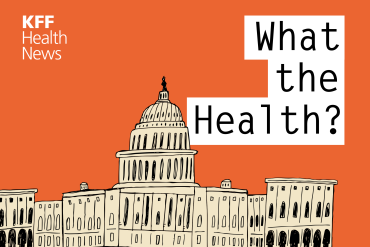Poppy Seed Brew Triggers Morphine Overdose, Drawing Attention of Lawmakers
Poppy seeds contaminated with opioids can be used to make a deadly brew, a watchdog says.
A Boy’s Bicycling Death Haunts a Black Neighborhood. 35 Years Later, There’s Still No Sidewalk.
John Parker was in first grade when he was struck by a pickup truck driving on Durham’s Cheek Road, which lacks sidewalks to this day. Neighborhoods with no sidewalks, damaged walkways, and roads with high speed limits are concentrated in Black neighborhoods, research finds.
Lo nuevo y lo que debes tener en cuenta en el próximo período de inscripción abierta de ACA
Estamos en esa época del año otra vez. En la mayoría de los estados, la temporada de inscripción abierta de la Ley de Cuidado de Salud a Bajo Precio (ACA) para los planes de salud comienza el 1 de noviembre y dura hasta el 15 de enero.
Trump Leads, and His Party Follows, on Vaccine Skepticism
Former President Donald Trump has presided over a landslide shift in Republican views on vaccines, reflected in false claims by candidates in election primaries, puzzling conspiracies from prominent conservatives, and a surge in anti-vaccine policies in statehouses.
Here’s Why Getting a Covid Shot During Pregnancy Is Important
New data from the CDC shows covid vaccination during pregnancy is key to protecting vulnerable newborns from the virus.
Trump lidera el escepticismo por las vacunas, y el partido lo sigue
Trump ha liderado un cambio radical en la visión de su partido sobre las vacunas, reflejado esta temporada de campaña en afirmaciones falsas de candidatos republicanos durante las primarias y en teorías conspirativas desconcertantes de voces conservadoras prominentes.
Es crítico vacunarse contra covid durante el embarazo
Casi el 90% de los bebés que tuvieron que ser hospitalizados con covid-19 tenían madres que no se vacunaron mientras estaban embarazadas, según nuevos datos publicados por los Centros para el Control y Prevención de Enfermedades.
Nursing Aides Plagued by PTSD After ‘Nightmare’ Covid Conditions, With Little Help
A KFF Health News investigation reveals that employers and the government have offered nursing aides little assistance for PTSD and other ongoing maladies triggered by hazardous work during the pandemic.
Deadly High Blood Pressure During Pregnancy Is on the Rise
More pregnant women are being diagnosed with dangerously high blood pressure, which risks the life of the parent and child. Montana is one of the states improving screening and treatment as health facilities work to match care with best practices.
Watch: What You Reveal, You Heal — Meeting the Makers of ‘Silence in Sikeston’
KFF Health News Midwest correspondent Cara Anthony sat down with WORLD executive producer Chris Hastings to discuss the origins of the “Silence in Sikeston” project, which explores the impact of a 1942 lynching and a 2020 police killing in the same rural Missouri community.
Aumentan los casos de hipertensión mortal durante el embarazo
Hoy en día, más embarazadas reciben diagnósticos de presión arterial peligrosamente alta, un hallazgo que podría salvar vidas.
The Public Health Consequences of Public Housing Failures
Every year more than 10,000 taxpayer-supported public housing units are lost to disrepair. But federal lawmakers routinely ignore the full amount, around $115 billion, needed to keep the units in “decent, safe and sanitary” condition. One-time funds for public housing repairs were cut from the final version of the 2022 Inflation Reduction Act to appeal […]
Florida’s New Covid Booster Guidance Is Straight-Up Misinformation
State Surgeon General Joseph Ladapo spread more anti-vaccine misinformation by telling Floridians to avoid mRNA vaccines. Vaccine experts and historians can’t remember another state health leader urging residents to avoid an FDA-approved vaccine.
La nueva guía de Florida sobre los refuerzos de covid es pura desinformación
Clínicos y científicos denuncian este mensaje como una táctica de miedo con motivación política que también debilita los esfuerzos para proteger contra enfermedades como el sarampión y la tos ferina.
Historic Numbers of Americans Live by Themselves as They Age
Longer life spans, rising rates of divorce, widowhood, and childlessness, and smaller, far-flung families are fueling a “gray revolution” in older adults’ living arrangements. It can have profound health consequences.
La vejez en soledad, así vive un número histórico de estadounidenses
Más de 16 millones de estadounidenses viven solos mientras envejecen. Sorprendentemente, se sabe muy poco sobre sus experiencias.
Tossed Medicine, Delayed Housing: How Homeless Sweeps Are Thwarting Medicaid’s Goals
As California cities crack down on homeless encampments in the wake of a U.S. Supreme Court ruling authorizing fines and arrests, front-line workers say such sweeps are undercutting billions in state and federal Medicaid spending meant to stabilize people’s health and get them off the streets.
In Montana, 911 Calls Reveal Impact of Heat Waves on Rural Seniors
State and local governments are struggling to keep up with the increasing burden of heat-related illness as summers get hotter because of climate change. In Missoula County, Montana, officials are working with researchers to understand trends in heat-related 911 calls.
What the Health? From KFF Health News: Live from Austin, Examining Health Equity
The term “health equity” means different things to different people. Beyond guaranteeing all Americans access to adequate, affordable medical care, the pursuit of equity can include addressing social determinants of health, such as housing, education, and environment. Systemic and historical racism — manifested in over-policing or contaminated drinking water, for instance — can negatively affect health. In a live taping at the Texas Tribune Festival, special guests Carol Alvarado, the Texas state Senate’s Democratic leader, and Ann Barnes, president and CEO of the Episcopal Health Foundation, along with KFF Health News’ Sabriya Rice and Cara Anthony, join KFF Health News’ Julie Rovner to discuss addressing health inequities.
Health Secretary Becerra Touts Extreme Heat Protections. Farmworkers Want More.
Health and Human Services Secretary Xavier Becerra has a plan to protect farmworkers from extreme heat and wildfire smoke, but farmworkers who pick California grapes say they need more, as climate change brings more extreme weather.






















